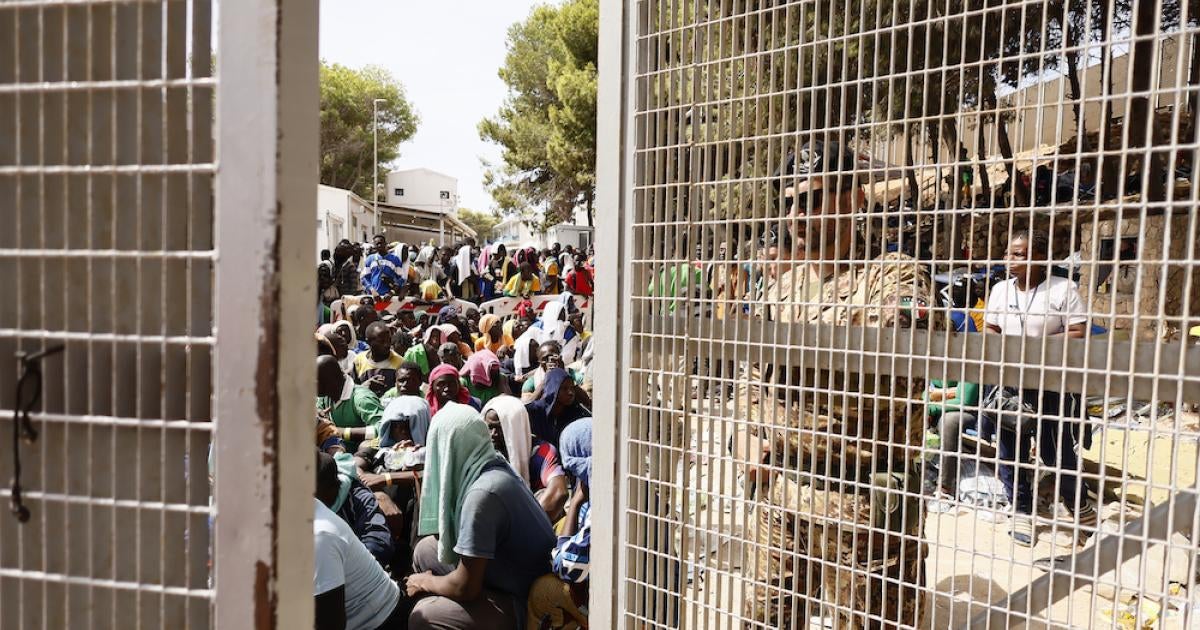November 2024 – Italy’s right-wing government has once again found itself grappling with the failure of its controversial plan to outsource the processing of asylum applications to non-EU countries. The ambitious project, aimed at addressing the growing number of migrants and refugees arriving in Italy, has not only faced legal challenges but is now under scrutiny from the Court of Auditors for its high costs and questionable effectiveness.
Italy’s ruling coalition, led by the right-wing Brothers of Italy party under Prime Minister Giorgia Meloni, had hoped that by outsourcing asylum processing to third countries outside the European Union, it could reduce pressure on its overstretched migration system. The plan was seen as part of a broader strategy to curb irregular migration and slow the arrival of thousands of migrants crossing the Mediterranean from North Africa.
However, the initiative has faced significant hurdles, both legal and financial, that now threaten its future viability.
The Offshore Processing Plan: A Costly Gamble
The government’s offshoring model was first proposed as a way to create migrant reception centers in countries outside the EU, with the goal of processing asylum applications in these third-party locations. This would ostensibly allow Italy to handle migration more efficiently, without burdening its own resources. The plan also aimed to provide better control over the flow of migrants into the country, particularly those arriving via dangerous sea routes.
However, the project has quickly run into a number of challenges. The most pressing issue is cost. Initial projections for the offshoring model indicated it would cost the Italian government hundreds of millions of euros annually. Despite this, the plan has not resulted in a significant reduction in migrant arrivals or the backlog of asylum claims, leading to concerns about its overall efficacy and whether it is a sustainable solution to Italy’s migration crisis.
Legal Challenges and European Pushback
The legal framework of the offshoring plan has come under increasing scrutiny. Critics argue that outsourcing the processing of asylum applications to non-EU countries violates international law and European Union regulations, particularly the Geneva Refugee Convention, which requires signatories to provide fair and accessible asylum procedures within their own territories.
Several human rights organizations have already filed lawsuits against the government, alleging that the offshoring model would put vulnerable migrants at risk of exploitation, inhumane treatment, and lack of access to legal recourse. These concerns have been amplified by reports of poor conditions in detention centers in countries like Tunisia and Libya, where migrants often face violence and inadequate care.
Furthermore, there has been pushback from within the European Union. Brussels has raised questions about the legality of outsourcing asylum procedures to countries that may not meet the EU’s standards for human rights and refugee protection. Some EU member states, particularly those in Southern Europe, have warned that such a model could set a dangerous precedent, weakening EU-wide solidarity and the Dublin Regulation, which stipulates that asylum applications should be processed in the first country of arrival.
Court of Auditors Weighs In
In addition to the legal challenges, Italy’s Court of Auditors (Corte dei Conti) has stepped in to question the financial soundness of the offshoring project. The Court raised concerns about the lack of transparency and the effectiveness of public spending on the migration outsourcing initiative.
The Court’s recent intervention highlights mismanagement of funds and a lack of oversight, pointing out that much of the money allocated for offshore migration processing has been spent without clear evidence that it is achieving its intended goals. According to a recent report, there is growing concern that the offshoring plan is turning into an expensive failure, with little in terms of tangible results or improvements in managing migration.
The government’s reliance on third countries that lack proper infrastructure and resources to handle large-scale migration is also seen as an unsustainable and short-term solution to a much more complex and systemic issue within Europe. The European Court of Human Rights has expressed concerns about the plan’s potential to breach human rights obligations, particularly regarding the conditions migrants could face in third countries.
A Divisive Issue in Italian Politics
The offshore migration processing model has become a deeply divisive issue in Italian politics, with the right-wing coalition defending it as an essential step toward tackling the ongoing migration crisis. Prime Minister Giorgia Meloni and her ministers have argued that the offshoring approach is necessary to prevent further strain on Italy’s social systems and to curb the rising tide of irregular migration from Africa.
However, the plan has been criticized by opposition parties, particularly center-left and Green lawmakers, who argue that it is both ineffective and immoral. They claim that the money spent on outsourcing asylum processing could be better spent on improving the domestic migration system, providing more support to asylum seekers, and ensuring that migrants are treated humanely and in accordance with international law.
Opposition leaders have also pointed out the long-term risks of relying on non-EU countries with questionable human rights records to process asylum applications, fearing that it could further undermine Italy’s credibility on the world stage.
The Path Forward: A Tenuous Future for Italy’s Migration Strategy
With mounting legal challenges, concerns from the Court of Auditors, and rising public backlash, Italy’s ambitious plan to offshore asylum processing appears to be in serious jeopardy. The government faces mounting pressure to reconsider its strategy, and political analysts are increasingly skeptical about the sustainability of the model.
In the face of these challenges, Italy may have little choice but to re-evaluate its approach to migration management. The government could focus on improving its own asylum infrastructure, investing in more humane and efficient systems for asylum seekers, or seeking a more cooperative EU-wide solution to the migration crisis, rather than continuing with its controversial offshoring strategy.
The ongoing challenges of the offshoring plan are indicative of the broader European migration dilemma, with countries divided on how best to address the influx of asylum seekers and migrants from conflict zones in Africa and the Middle East. Without a more coordinated and sustainable approach, Italy’s experience with offshore processing may serve as a cautionary tale for other European nations grappling with the pressures of migration.
References:
- Reuters, 2024. “Italy’s Offshore Migration Plan Faces Legal and Financial Hurdles.” Reuters Report
- BBC News, 2024. “Italy’s Controversial Asylum Processing Plan Under Fire.” BBC
- Court of Auditors (Corte dei Conti), 2024. “Italy’s Offshore Migration Processing: A Financial Review.” Corte dei Conti Report



